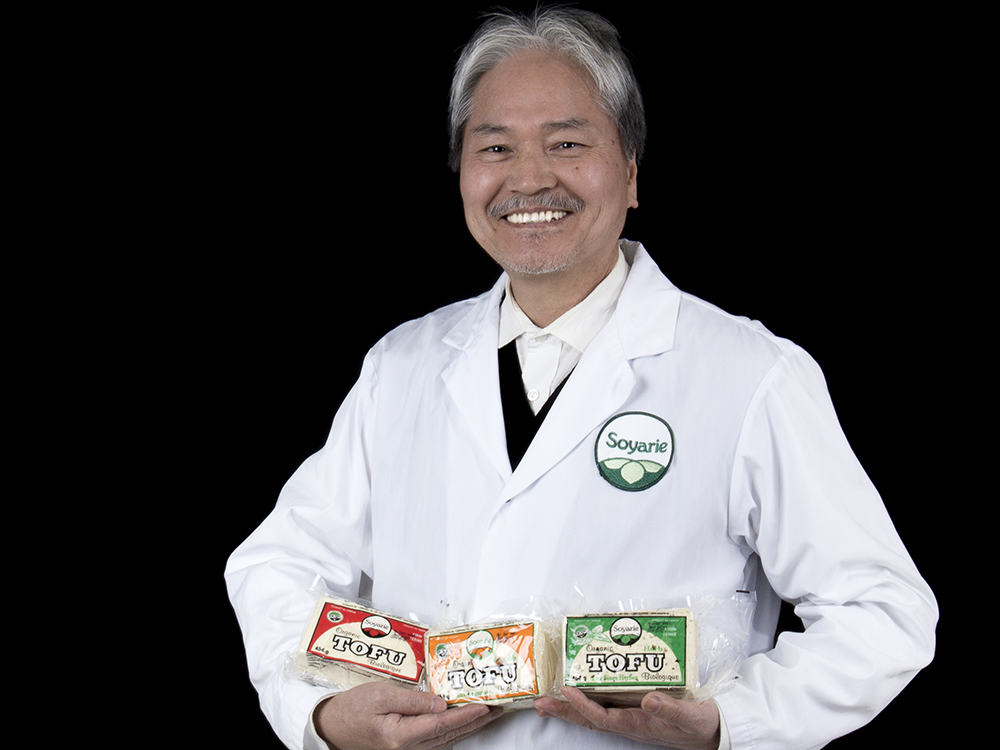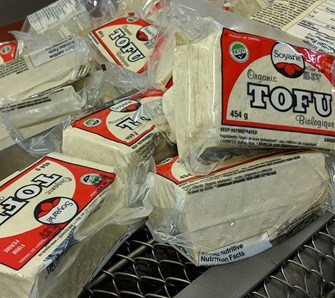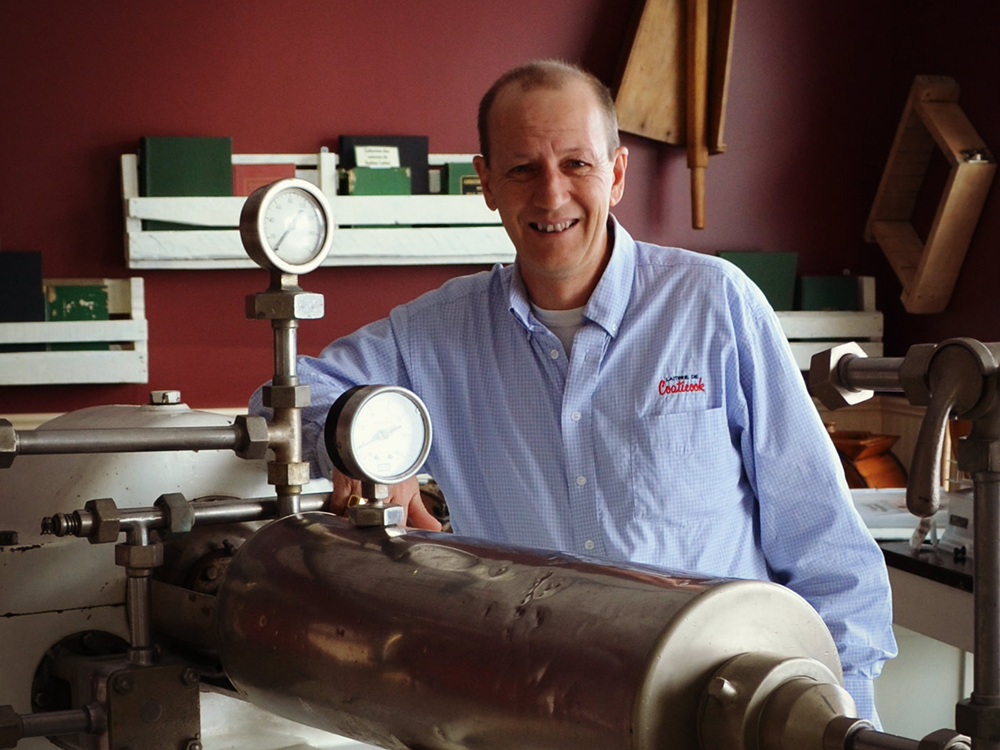
Soyarie: Quebec-made tofu on the menu
Koichi Watanabe's Story
For Koichi Watanabe, starting his own business was a necessity. Born in Japan, he went travelling after his university studies and landed in South America. While in Guatemala he met his first love, a Quebecois woman, whom he decided to settle down with in Canada, in the Gatineau region. But he had quite a hard time finding his ideal job in his adopted homeland. “I even got fired from my job as a dishwaser at a Chinese restaurant!” exclaims Watanabe, laughing. It was the end of the 1970s, and Watanabe was living with his friends in a hippie commune. One of them had a copy of The Book of Tofu by William Shurtleff and Akiko Aoyagi, which was practically a bible for tofu-lovers and had a major impact on the popularization of the foodstuff in the West. His curiosity piqued, Watanabe decided to give tofu-making a try.
He was able to benefit from the help and expertise of his older brother, Masaru, who already had several years of experience making tofu in his native Japan. In 1979, he moved his company into a former bakery located in Hull, and thanks to start-up capital lent by his brother, he bought the equipment he needed to start production. Soyarie was officially born in 1982. Ten years later, Watanabe had seven employees; today, that number has increased six-fold, for a total of 45 employees.
“When I started, you could only buy tofu in small specialized Japanese or Chinese grocery stores. But over time, demand increased spectacularly”
Koichi Watanabe
Today there is a growing number of vegans and vegetarians, and increased public interest in plant-based proteins in general, which are promoted by the latest Canada Food Guide unveiled in 2019. Tofu is now part of many recipes, including those from well-known chefs, and what was once a little-known product can be found on the shelves of every good grocery store. This is how Soyarie’s sales multiplied, with the company’s production facility now operating six days a week, 24 hours a day.
 Tofu production is fairly simple. You need to heat, filter and press a mixture of ground soybeans and water. Then, this soy “milk” congeals and is pressed into blocks, somewhat like producing cheese—the coagulation agent varies depending on the type of tofu desired and whether it’s made to be firm or soft.
Tofu production is fairly simple. You need to heat, filter and press a mixture of ground soybeans and water. Then, this soy “milk” congeals and is pressed into blocks, somewhat like producing cheese—the coagulation agent varies depending on the type of tofu desired and whether it’s made to be firm or soft.
So what’s Koichi Watanabe’s secret to making tofu? He’s keeping it well hidden. “We use a traditional Japanese method of creating tofu. It’s a recipe that reflects the culture of the country I came from,” he explains. As in Japan, the secondary products offered by Soyarie—such as ready-to-serve Wafu burgers, as well as tofu nuggets and cubes, patties and slices—are created from what’s left over after producing their classic blocks of organic tofu. “In Japan, this is a common way to reuse materials, and we recognized it was an opportunity to widen our range of products by offering prepared foods with flavours that would appeal more to the North American market.”
Soyarie’s products are found in restaurants, supermarkets and health food stores, but the company also works with other producers like Fontaine Santé, which uses Soyarie’s tofu to make spreads. “Eventually, we hope to work with other retailers in order to offer our expertise in soy products and an even wider range of soy products, to encourage people to want to cook with tofu,” states Watanabe. Due to the never-ending increase in soy’s popularity, Soyarie will be moving into a new 65,000-square-foot location by next year in order to increase its production capacity in 2020. “We’ve come a long way since our humble beginnings, and we hope to keep the momentum going.”
Soyarie in Numbers
6: Number of metric tons of tofu produced per day
45: Number of employees at Soyarie
166%: Growth in revenue since 2017
$5 million: Sales revenue of Soyarie
Want to learn more?
Visit Soyarie’s website


